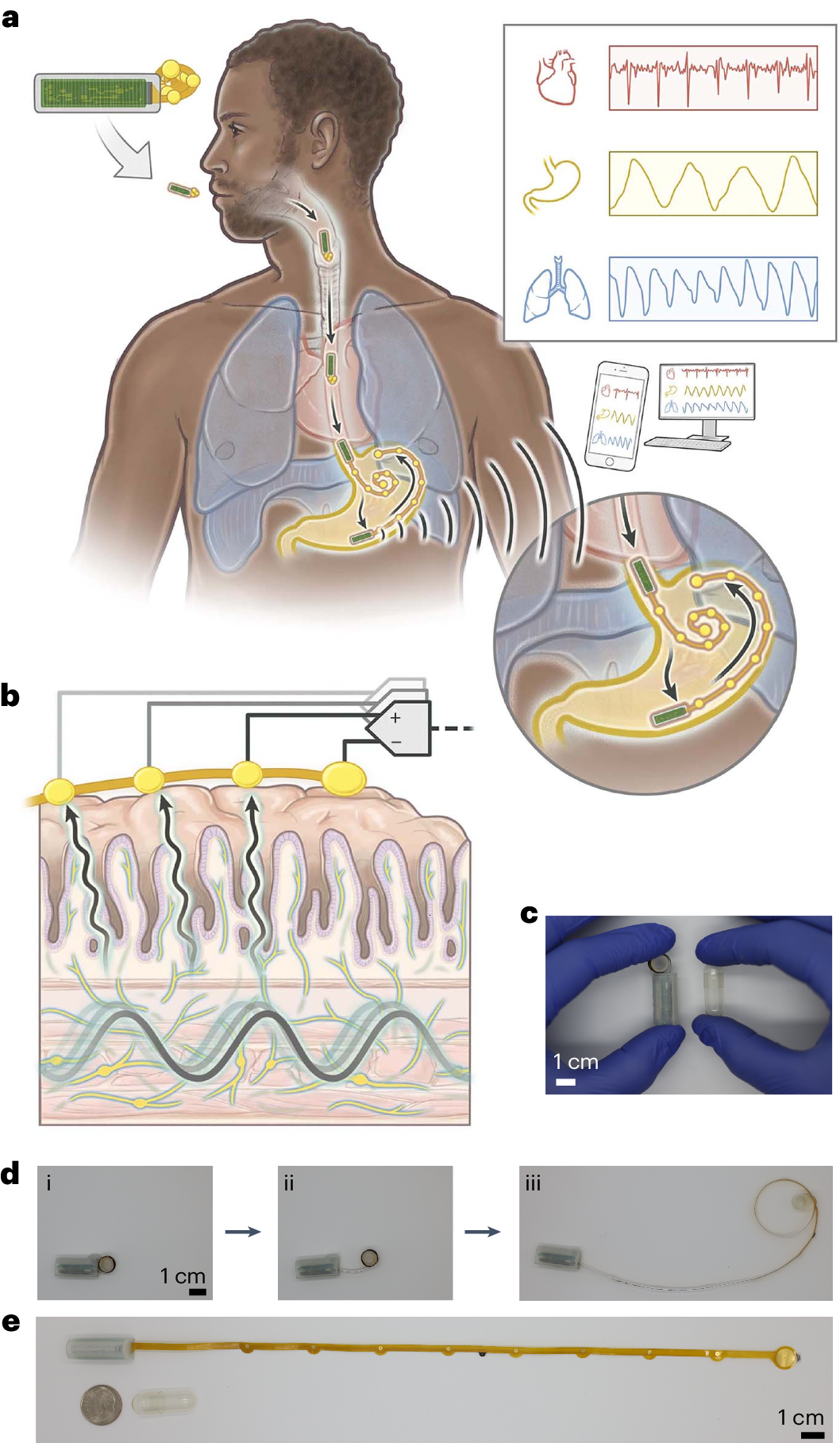A new ingestible sensor promises to revolutionize the way we monitor gastrointestinal health.
Developed by a team of scientists from the Massachusetts Institute of Technology (MIT), this sensor can be swallowed like a pill and unfolds in the stomach.
Once unfolded, this sensor will measure the electrical activity of the cells that control digestion.
This technology - comparable to an electrocardiogram for the heart, but aimed at the gastrointestinal tract - was revealed in a study published recently in Nature Electronics.
As New Scientist explains, the device - called "MiGUT" - consists of a 25-centimeter strip with gold electrodes, housed inside a 3D-printed resin capsule. A soluble adhesive tape keeps the capsule closed until, upon coming into contact with gastric fluids, it dissolves, allowing the sensor to expand.
Initial tests on pigs have shown that MiGUT can be accurately implanted via endoscopy, successfully monitoring electrical activity during different states, such as resting and eating, without causing obstructions in the gastrointestinal system.
This technology could help diagnose diseases such as gastroparesis and chronic indigestion - which currently require invasive procedures such as implanting electrodes through surgery.
But it's not limited to diagnosis
This technology is not just limited to diagnosis. The MIT team is also exploring the therapeutic potential of MiGUT.







